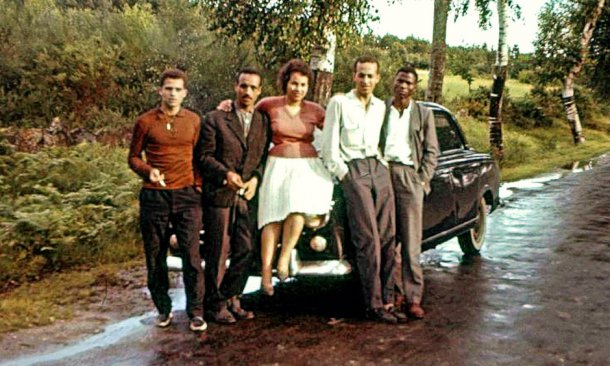A fuga que mudou o futuro de África
Publicado9 Mar 2015

Imagem: Photograph: Kimball Jones
Hoje figuras reconhecidas, com um papel à frente dos destinos dos seus países ou de instituições relevantes, Joaquim Chissano, Pedro Pires, Lilica e Manuel Boal são apenas algumas das personagens que fazem parte da história contada pelo jornal britânico The Guardian, que relata a aventura de um grupo de estudantes africanos que estudavam na então desiganada "metrópole" e que, nos anos 60, fogem de Portugal, onde o clima de repressão política era intenso, para, no estrangeiro, dar forma aos seus projectos independentistas.
As the 50s gave way to the 60s, Portugal was in the grip of the scholarly but ruthless dictator António de Oliveira Salazar. A “corporatist”, he saw the colonies as extensions of Portugal. His was, according to Joaquim Chissano, former president of Mozambique and one of the students involved in this story, a “fascist regime”.
The winds of change were sweeping Africa. Countries such as Ghana, Senegal and Congo had already achieved independence and a war of liberation had begun in the Portuguese colony of Angola. Salazar was isolated in world opinion as he had lost his greatest supporters: Eisenhower had been replaced by Kennedy in the US; Pope Pius XII had died, and there had been a change of regime in Brazil.
In such a climate, the dictatorship grew increasingly – and rightly – concerned about the Africans studying in Portugal. “We saw the war had begun,” says Osvaldo Lopes da Silva, another of the students who fled Portugal and who would go on to become Cape Verde’s minister of finance. “We were increasingly being watched by the secret police [the PIDE], and we were running the risk of being drafted into the Portuguese army.”
The winds of change were sweeping Africa. Countries such as Ghana, Senegal and Congo had already achieved independence and a war of liberation had begun in the Portuguese colony of Angola. Salazar was isolated in world opinion as he had lost his greatest supporters: Eisenhower had been replaced by Kennedy in the US; Pope Pius XII had died, and there had been a change of regime in Brazil.
